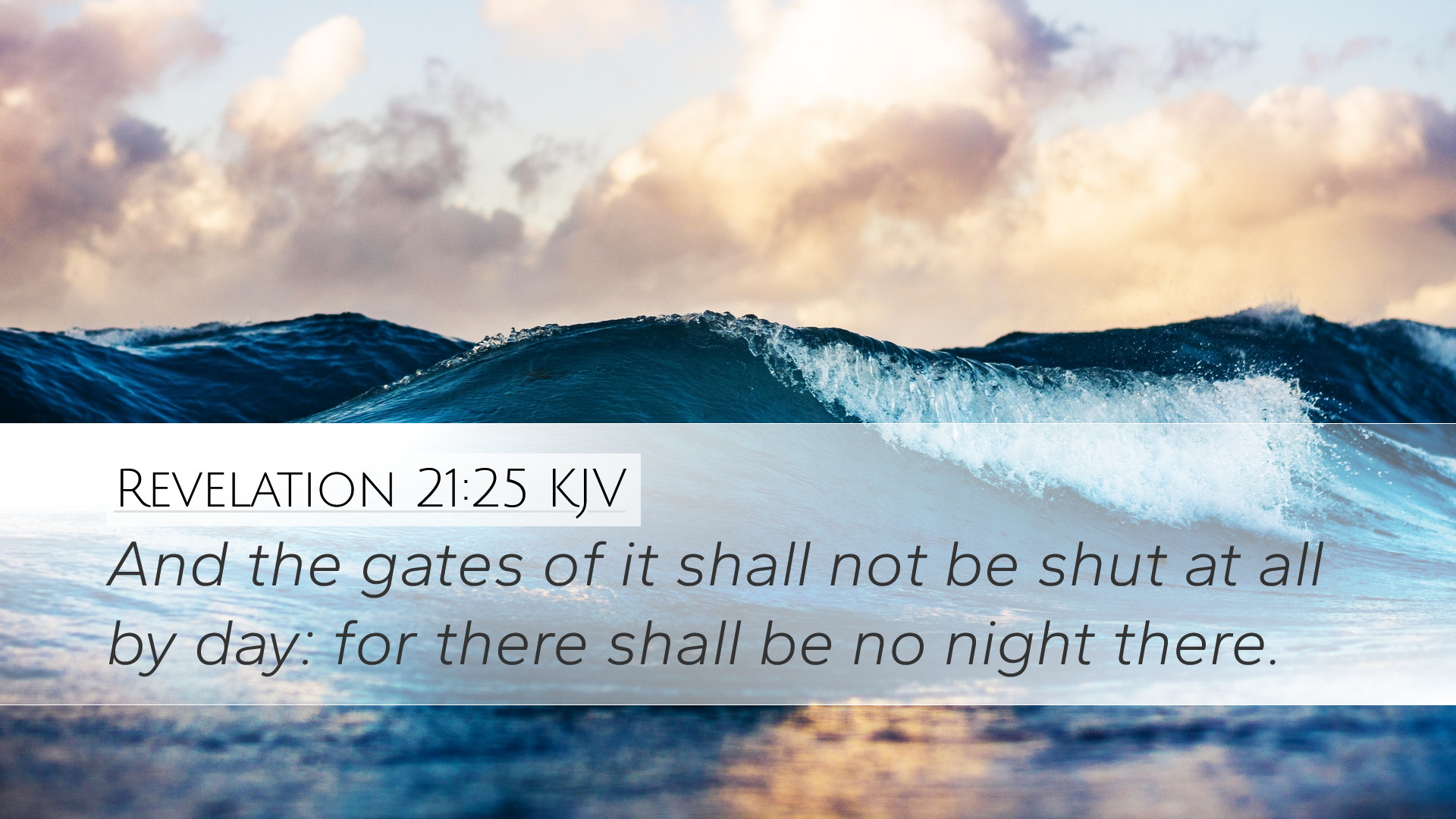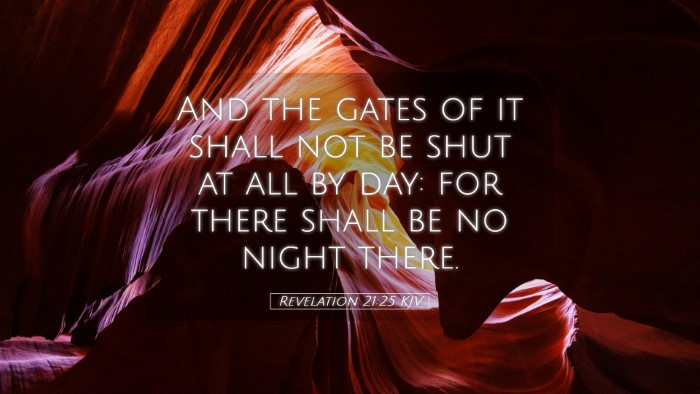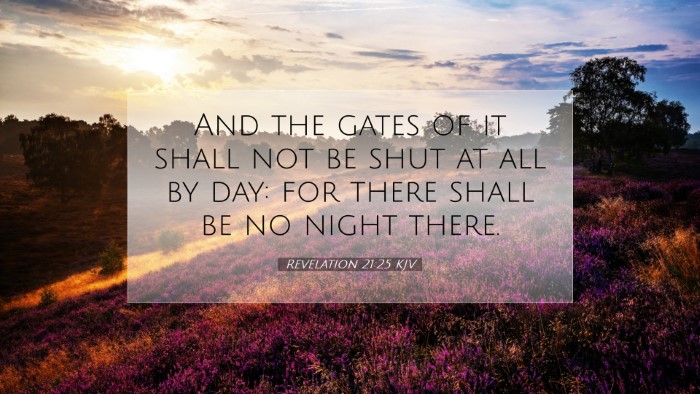Revelation 21:25 Commentary
Verse: Revelation 21:25
"And the gates of it shall not be shut at all by day: for there shall be no night there."
Introduction
The twenty-first chapter of the Book of Revelation presents a vivid and awe-inspiring account of the New Jerusalem, the ultimate fulfillment of God's promise to His people. Verse 25 is particularly significant as it encapsulates the security and unending light found in the eternal state. Analyzing this verse through the insights of respected public domain commentaries provides a deeper understanding.
Historical Context
This verse is situated within a larger vision of the New Jerusalem, reflecting the culmination of God's redemptive history. As noted by Albert Barnes, this imagery contrasts sharply with earthly cities, where gates are closed for security. The New Jerusalem symbolizes an everlasting communion with God, making the city free from the fears and dangers that necessitate closed gates.
Theological Significance
This chapter emphasizes themes of hope and eternal security, underscored by the absence of night, which Matthew Henry eloquently notes symbolizes both physical and spiritual illumination. It reflects God's ultimate sovereignty and the restoration of creation, where darkness and danger have no place.
Adam Clarke highlights that the phrase “shall not be shut at all by day” underlines a perpetual openness, indicating the unending nature of God's presence. The gates represent access to God, and their continual opening signifies a world where divine fellowship is unhindered.
Symbolism of Gates and Light
Gates in biblical literature often represent entry points to safety or judgment, as noted by Barnes. Here, the open gates of New Jerusalem signify an invitation to a relationship with God. The absence of night serves to illustrate the perpetual state of divine safety and constant vigilance: the city is illuminated by God's glory.
- Security: As Henry points out, a city without gates often faces threats. Yet, in this heavenly city, security is inherent; no threat exists that could justify a need for gates to be closed.
- Fellowship: The continual opening of the gates symbolizes endless fellowship with God and with one another, inviting believers to participate in the joy of the eternal kingdom.
- Divine Light: The absence of night indicates a complete unveiling of God's glory, embodying the fullness of truth, peace, and holiness. Clarke emphasizes that God's presence fills the city, making it unnecessary for gates to close against darkness.
Lessons for Believers
For pastors and theologians, this verse serves as a powerful reminder of the hope we have in Christ. The promises in the Book of Revelation encourage believers to persist in faith, reflecting the reality of God's ultimate victory and the restoration of paradise. The church is called to embody the light of Christ in a world often shrouded in darkness, as Henry suggests.
Additionally, Barnes reflects on the Christian's role in sharing this message of hope within our communities. As we await Christ's return, we are to live as light in the world, drawing others to the gates of the New Jerusalem.
Conclusion
Revelation 21:25 beautifully encapsulates the promise of an eternal fellowship with God, characterized by divine security, continual light, and unhindered access to the throne of grace. The theological insights provided by Matthew Henry, Albert Barnes, and Adam Clarke encourage us to appreciate the profound reality that awaits believers in the presence of God. In a time when darkness often threatens to overwhelm, this verse offers profound comfort and hope, urging the faithful to look beyond the present to the glorious eternity that God has prepared.


